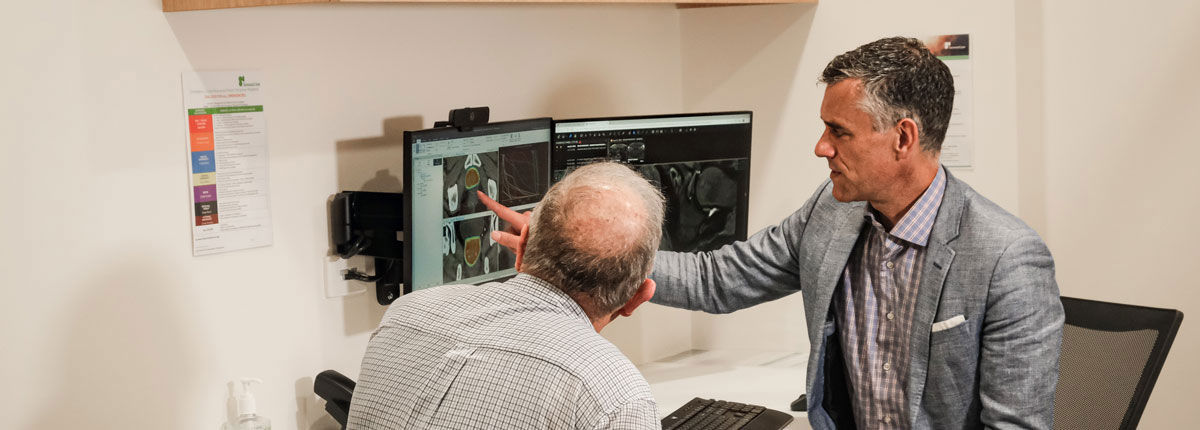Raymond Terrace resident becomes 200th patient in radiation therapy NINJA trial coordinated by TROG Cancer Research and GenesisCare
This trial milestone coincides with Prostate Cancer Awareness Month
Maitland, NSW – Hunter locals are doing their part to shape the future of international cancer care, as Raymond Terrace resident Phillip Bambach becomes the 200th patient to participate in the TROG Cancer Research 18.01 – NINJA clinical trial.
The NINJA trial is focused on using advanced imaging and radiation technology to test the effectiveness of fewer treatments for localised prostate cancer patients.
While traditional radiation treatment can require up to seven weeks of daily treatments, participants in the NINJA trial complete one of two shorter schedules of radiation therapy. For Phillip Bambach, this means five treatments over two weeks.
Radiation Oncologist at GenesisCare and Co-Lead Investigator for the NINJA trial, Professor Jarad Martin said that providing better outcomes to cancer patients easily and accessibly, no matter where they are, is an important step for the future of cancer treatment.
Prostate cancer remains one of the most common cancers amongst men, and statistical data from the Australian Institute of Health and Welfare demonstrates that the further patients are required to travel to receive treatment, the less likely they are to seek help[1].
Falling during Prostate Cancer Awareness Month, CEO of TROG Cancer Research Susan Goode said this milestone acts as a good reminder to check in with your GP and seek treatment as required.
“Prostate cancer is the third most common cause of cancer-related death in Australia[2] and early detection and effective treatment can be the difference between a long happy life or poorer outcomes and even death,” Ms Goode said.
“At TROG Cancer Research we are so proud of the work we’ve done with trials like NINJA to provide more accessible and flexible treatment options for those with cancer,” Ms Goode concluded.
The Trans-Tasman Radiation Oncology Group (TROG Cancer Research) is one of the largest clinical trials groups in Australia and New Zealand, and in partnership with oncology providers like GenesisCare, aims for its research to deliver successful clinical outcomes for patients, alongside a reduced social burden.
For patients living in regional areas like the Hunter, this burden often takes the shape of hours-long commutes to and from treatment centres.
The NINJA trial allows patients in the Hunter to be a step closer to receiving world-class treatment with fewer barriers.
By reducing the number of treatment sessions, researchers like Professor Martin hope that more patients will travel to receive the care that they need.
Men with prostate cancer in the Hunter region seeking further information on eligibility criteria can call 1800 316 635 or email oncology.research@genesiscare.com
References
[1] https://www.aihw.gov.au/reports-data/health-conditions-disability-deaths/cancer/data
[2] https://www.cancer.org.au/cancer-information/types-of-cancer/prostate-cancer



